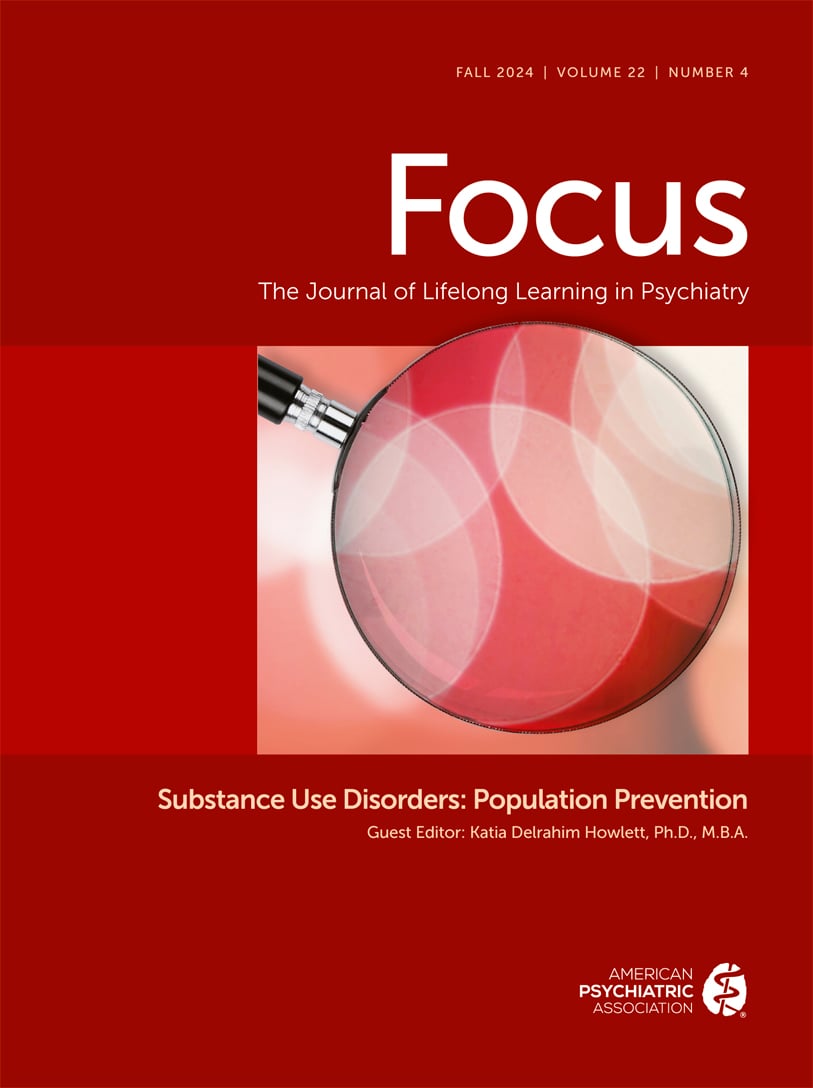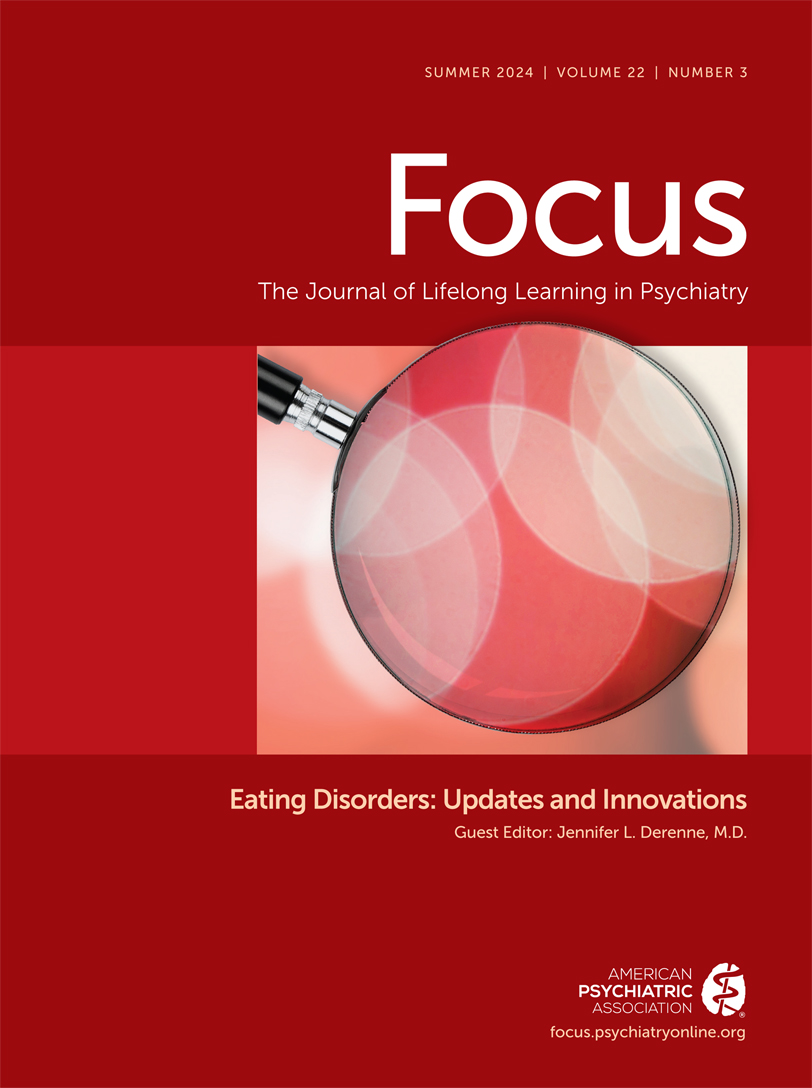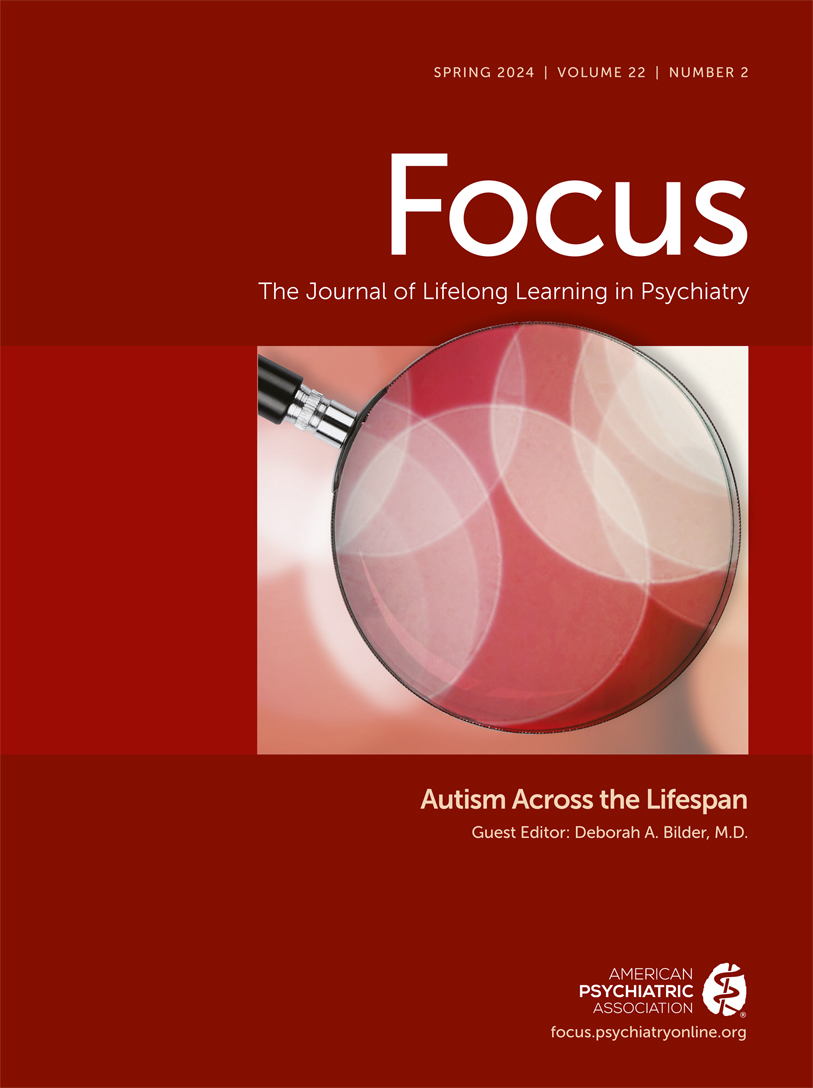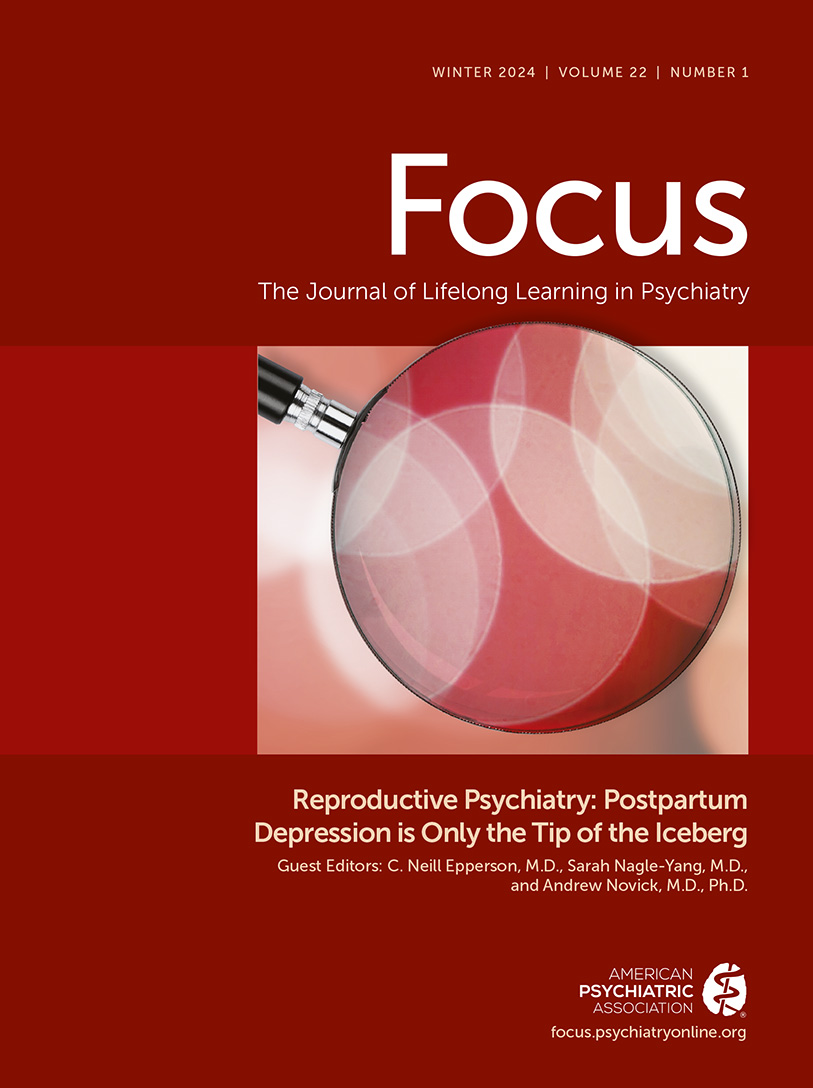Focus
- Volume 17
- Number 3
- July 2019
From the Guest Editor
Reviews
Publication date: 01 July 2019
Pages206–217Bipolar disorder involves diverse features and symptom targets that extend beyond mood alone. RCTs that establish drug efficacy for an overall diagnosis and illness state can help practitioners devise personalized combination therapy regimens that ...
https://doi.org/10.1176/appi.focus.20190005Publication date: 01 July 2019
Pages218–231This overview presents the varied symptoms of psychopathology for which patients with bipolar disorder are prescribed medications so that practitioners can devise complementary, nonredundant, purposeful, and evidence-based regimens.
https://doi.org/10.1176/appi.focus.20190008Publication date: 01 July 2019
Pages232–237Depression in bipolar disorder is prevalent, disabling, and often difficult to treat, and only three medications are approved for its treatment. Identification of clinical and biological markers to personalize treatment selection is urgently needed.
https://doi.org/10.1176/appi.focus.20190009Publication date: 01 July 2019
Pages238–248This literature review focuses on randomized controlled trials of psychotherapy for bipolar disorder. Evidence-based psychotherapies are shown to play an important role in the development of skills needed to manage the persistent and lifelong consequences ...
https://doi.org/10.1176/appi.focus.20190004Publication date: 01 July 2019
Pages249–258The safety of pharmacotherapy for bipolar disorder during pregnancy and lactation is a subject of debate. In this review, the authors analyze the practical questions, current controversies, and available evidence regarding psychotropic drug therapy during ...
https://doi.org/10.1176/appi.focus.20190007Ask the Expert
Communication Commentary
Ethics Commentary
Patient Management Exercise
Bibliography
Abstracts
Influential Publications
Publication date: 01 July 2019
Pages278–283The proper place and the optimal use of antidepressants in treating bipolar depression continues to be an area of great interest and greater controversy with passionate opinions more common than good studies. Even the handful of meta-analyses in the area ...
https://doi.org/10.1176/appi.focus.17306Publication date: 01 July 2019
Pages284–293Bipolar disorder (BD) is a leading cause of global disability. Its biological basis is unknown, and its treatment unsatisfactory. Here, we review two recent areas of progress. First, the discovery of risk genes and their implications, with a focus on ...
https://doi.org/10.1176/appi.focus.17309Publication date: 01 July 2019
Pages294–307Personalized medicine has become increasingly relevant to many medical fields, promising more efficient drug therapies and earlier intervention. The development of personalized medicine is coupled with the identification of biomarkers and classification ...
https://doi.org/10.1176/appi.focus.17304Publication date: 01 July 2019
Pages308–313Lithium is the most successful mood stabilizer treatment for bipolar disorder. However, unlike conventional drugs that are designed to interact with a specific molecular target, the actions of lithium are distributed across many biological processes and ...
https://doi.org/10.1176/appi.focus.17305Publication date: 01 July 2019
Pages314–321Objective: Clinicians treating older patients with bipolar disorder with mood stabilizers need evidence from age-specific randomized controlled trials. The authors describe findings from a first such study of late-life mania. Method: The authors compared the ...
https://doi.org/10.1176/appi.focus.17308Publication date: 01 July 2019
Pages322–324Objectives: The authors compared the switch rate into hypomania/mania in depressed patients treated with second-generation antidepressants who had either bipolar I or bipolar II disorder. Method: In a 10-week trial, 184 outpatients with bipolar depression (...
https://doi.org/10.1176/appi.focus.17307Past Issues
View Issues Archive
Vol. 22 | No. 4

Vol. 22 | No. 3

Vol. 22 | No. 2
